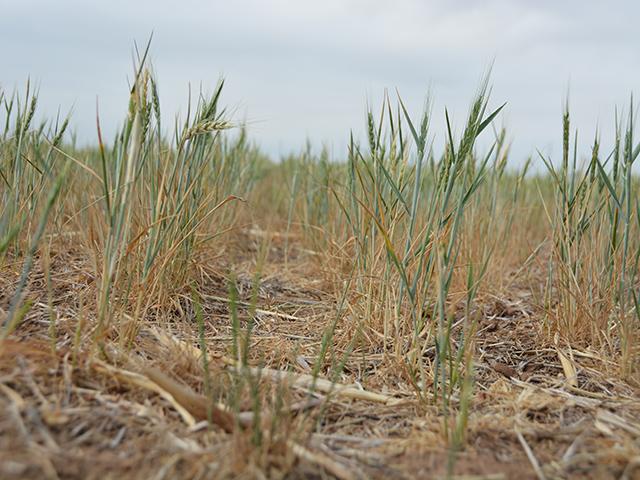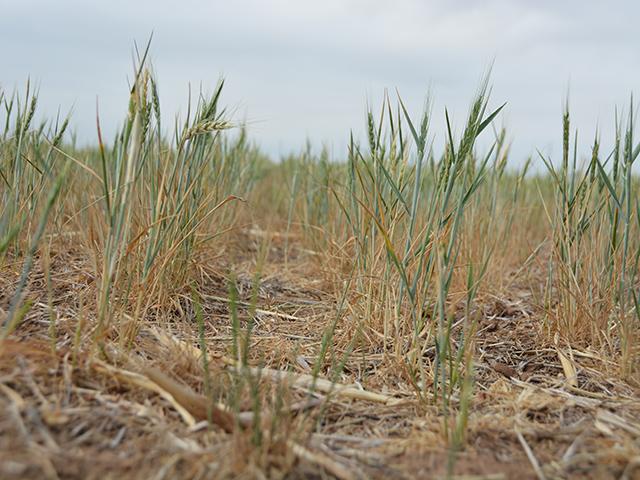Ag Policy Blog
Ag and Climate Change Hearing Set for Senate Budget Committee
The U.S. Senate will hold a hearing Wednesday on the impacts of climate change on agriculture, and the role of climate-smart agriculture, but the hearing won't be held by the Senate Agriculture Committee. Instead, the U.S. Senate Budget Committee will take lead on the topic.
Sen. Sheldon Whitehouse, D-R.I., chairman of the Senate Budget Committee, announced the hearing, which is set for June 7 at 9 a.m. Central. Whitehouse is known for giving nearly 300 floor speeches in the Senate chamber on climate change.
In highlighting the hearing, the committee press advisory noted, "evidence shows climate-related temperature increases, shifts in water availability, soil erosion and moisture, and disease and pest outbreaks will drive up costs for famers and consumers, as well as for the federal government. For example, in 2021, the Federal Crop Insurance Program had a total liability of $136.6 billion, and the federal government paid over $5.4 billion in premium subsidies for the program. As emissions continue to increase, the U.S. Department of Agriculture estimates that premium subsidies could increase by 22% by the end of the century. Climate-smart agriculture can play a key role in mitigating these impacts by protecting agricultural production, making farms more resilient, and helping to reduce greenhouse gas emissions."
The advisory's numbers were a bit off. While total liability in 2021 was $136.6 billion, that simply points out the value of crops covered under the program. The premium subsidy for 2021 also was higher, $8.6 billion with indemnities reported at nearly $9.6 billion.
For the 2022 crop year, liabilities were a record $173.55 billion, along with a record high in policy numbers and acres insured. The premium subsidy also was a record $11.6 billion. Indemnities in 2022 also hit a record high at $17.87 billion, which topped the previous record from the 2012 drought year, according to Risk Management Agency data.
It should also be noted that a 22% increase in crop insurance premium subsidies over a 77-year stretch wouldn't be a significant change in costs in the grand scheme of things.
Given the news advisory's comments about climate-smart agriculture, it raises a question over whether this hearing is meant to help protect the $19.5 billion in conservation funds for USDA in the Inflation Reduction Act as Republicans on the House and Senate Agriculture Committees have repeatedly said they want to take at least some of that money and use for other areas of the farm bill. The GOP members also want to eliminate the IRA requirement that those conservation funds go to practices that reduce emissions or sequester carbon in the soil.
P[L1] D[0x0] M[300x250] OOP[F] ADUNIT[] T[]
Witnesses for the hearing include
Brandon Willis, an assistant professor for economics at Utah State University. Willis also had served administrator of the Risk Management Agency at USDA in the Obama administration. Before that he was the deputy administrator for farm programs at FSA.
Martin Larsen, Larsen Family Farm & Byron Area Farmers Group out of Olmsted County, Minnesota. Larsen is 100% no-till on his farm and uses cover crops as well.
Brent Johnson, president of the Iowa Farm Bureau
Bryan Sievers, chief operating officer of Sievers Family Farms in Stockton, Iowa, and director of government relations for Roeslein Alternative Energy in St. Louis, Mo.
The hearing will be livestreamed on the Budget Committee's website. https://www.budget.senate.gov/…
Also see, "Wheat Abandonment Could Be Most Since World War I,"
Chris Clayton can be reached at Chris.Clayton@dtn.com
Follow him on Twitter @ChrisClaytonDTN
(c) Copyright 2023 DTN, LLC. All rights reserved.





Comments
To comment, please Log In or Join our Community .